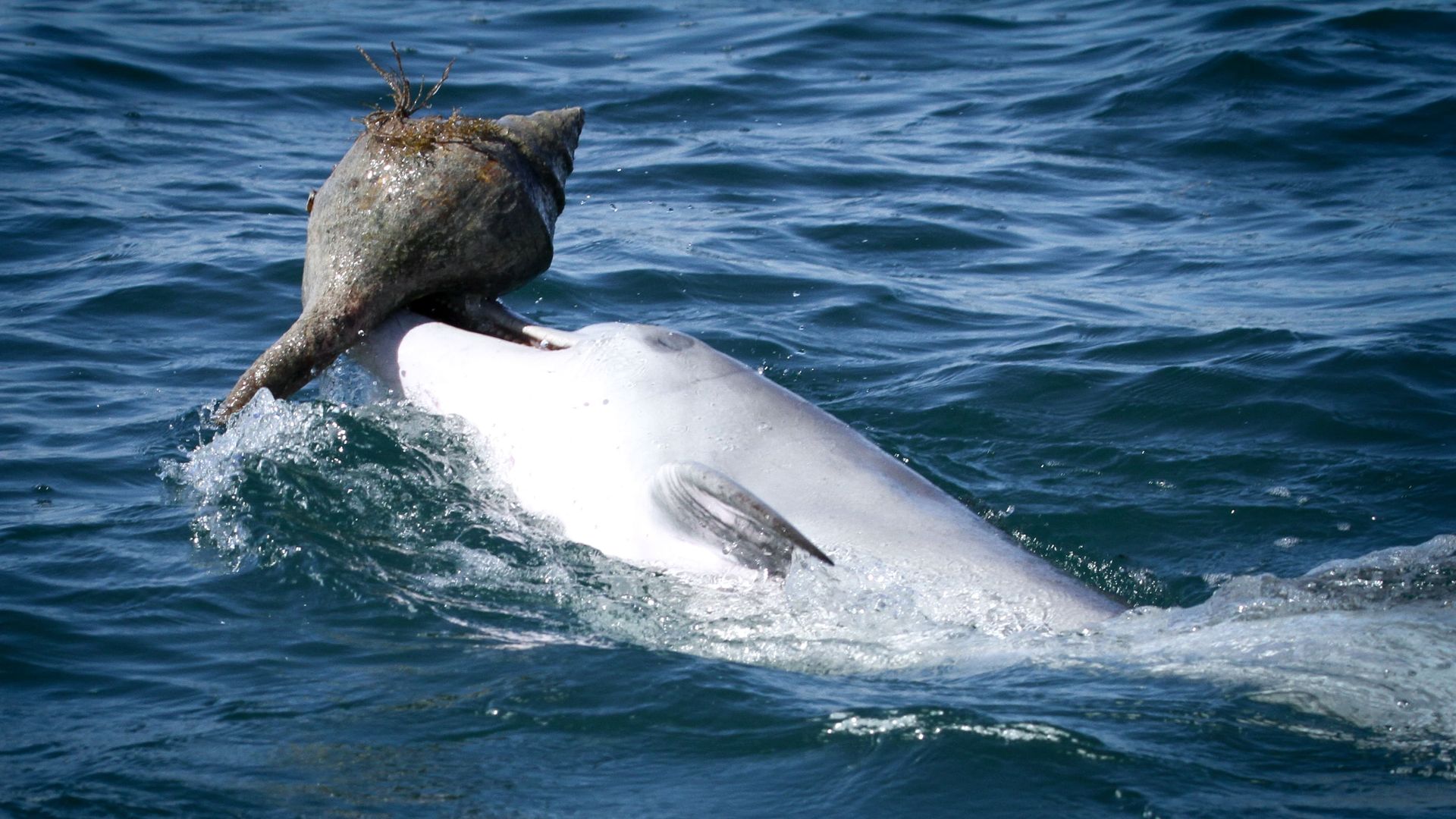Dolphins can learn fish-catching skill from unrelated peers

- Alison Snyder, author ofAxios Science

A dolphin shelling. Photo: Sonja Wild/Dolphin Innovation Project
Dolphins can learn from other unrelated dolphins about how to use empty shells to trap prey, according to new research.
The big picture: Learning from others is one way to transmit information that drives the evolution of cultures. The behavior is largely observed in primates, including us humans.
- The study, published today in the journal Current Biology, "sets an important milestone and suggests that the cultural natures of Great Apes and dolphins are similar ... despite having divergent evolutionary pathways and occupying markedly disparate environments," the authors write.
What they did: Sonja Wild, now a postdoctoral researcher at the University of Konstanz in Germany, and her colleagues observed dolphins thousands of times in Western Australia's Shark Bay.
- In 42 instances they spotted 19 different dolphins chasing fish into empty shells, carrying them to the surface with their beak and shaking the fish into their mouth.
- The shelling behavior lasts just a few seconds and is rarely observed.
- The researchers then analyzed the Indo-Pacific bottlenose dolphins' social group, factoring in their genetic relationships (the dolphins came from three different lineages) and controlling for environmental influences, and found about 57% of the dolphins learned shelling socially from their peers.
- (That means 43% learned the skill on their own but Wild says given the limited number of times individuals have been seen, it may be that the researchers missed some social connections among the dolphins who were shellers.)
Yes, but: Some dolphins may learn shelling from their mother or on their own, Janet Mann, a researcher at Georgetown University who wasn’t involved in the study, told the NYT.
Why it matters: Learning within generations allows a rapid spread of novel behaviors that may help to cope with new conditions, says Wild.
- "It has therefore been suggested that species with the capacity to learn socially from peers may be more likely to persist in a changing environment, including changes associated with global warming."